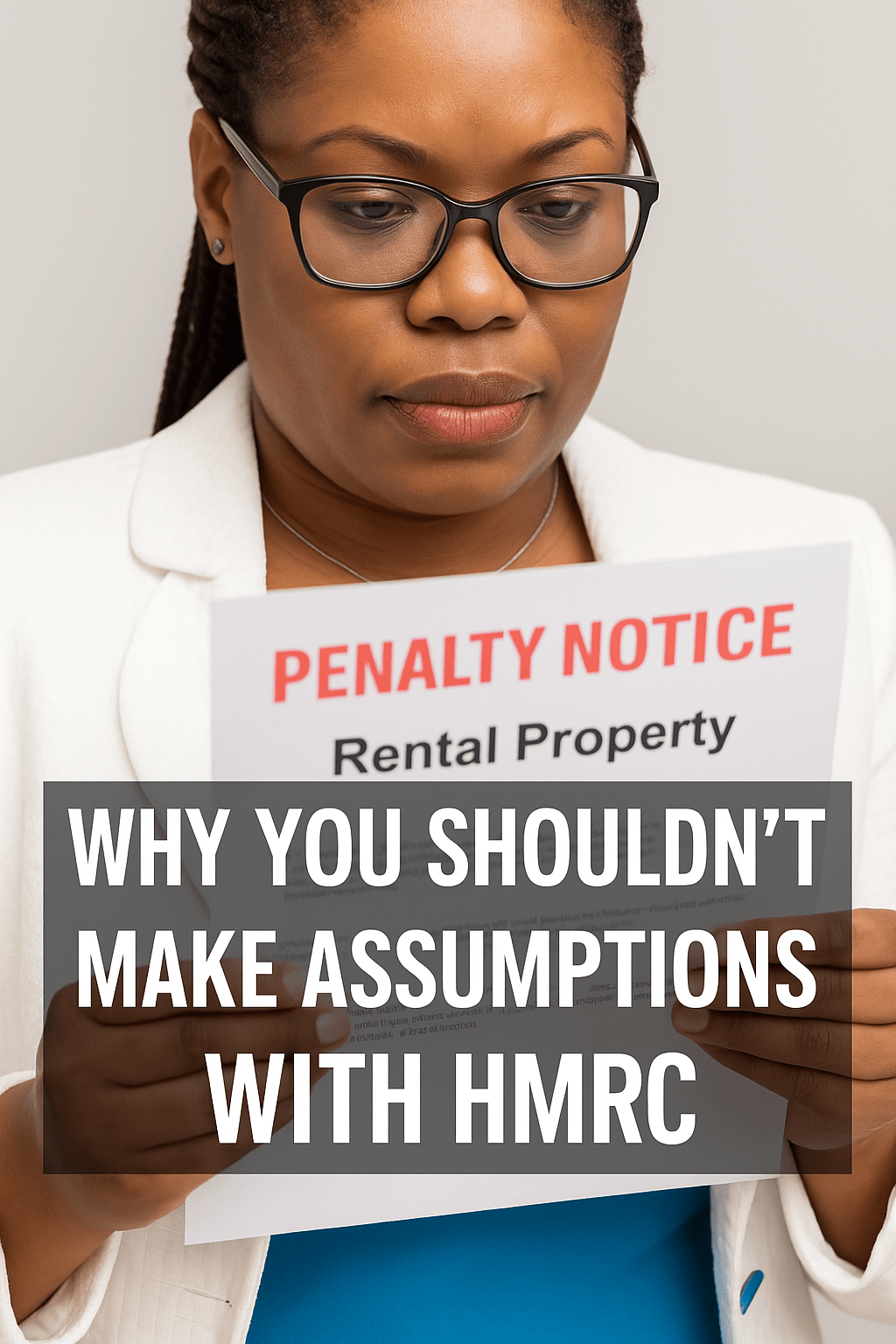It’s easy to assume HMRC only cares about big business or full-time landlords. But that kind of thinking can cost you — and I’ve seen it happen.
The Real Example
Not long ago, I helped a client who was in full-time employment and had never been self-employed. He didn’t run a business, and his taxes had always been handled through PAYE.
At one point, he rented out his house for a short while. Nothing major — just a temporary arrangement while he lived elsewhere. He assumed it was too minor to report.
But HMRC found out a couple of years later. By then, the tax was overdue. And it wasn’t just the tax — there were late reporting penalties, interest charges, and the emotional stress of being under investigation. It cost him thousands.
The Dangerous Assumptions
This isn’t unusual. People make well-meaning but costly assumptions like:
- “It’s just a one-off, not real income.”
- “HMRC won’t care — it’s not a business.”
- “I’m employed, so I don’t need Self Assessment.”
- “They’d tell me if I needed to report it.”
But HMRC doesn’t work like that. They expect you to know the rules — and if you don’t, they still hold you responsible. The longer the mistake goes uncorrected, the higher the cost becomes.
The Safer Alternative
If you earn income outside your main employment — even from renting out a room or property short-term — always ask yourself: Does this need to be declared?
If you’re unsure, don’t guess. Ask a qualified Accountant. It’s far cheaper to get advice early than to deal with penalties later.
At Grace Certified Accountants, we help clients make informed decisions — not assumptions. If you’ve had rental income or any side income, even in the past, we can help you review it and get things straight with HMRC before they come calling
Need Help?
Don’t let a small oversight become a major problem.
Email us at info@gracecertifiedaccountants.co.uk for confidential advice.
